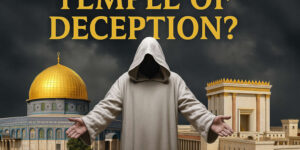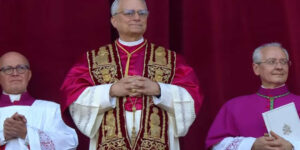Hearing Will Decide Whether or Not the First Amendment Protects Your Right to Pray in Your Own Home
Attorneys for First Liberty Institute are now arguing to defend Americans’ right to pray in their own home without government interference.
Last fall, we introduced you to Mary Anne Sause, a Catholic former nurse, who was prevented from praying in her home by officers of the Louisburg, Kansas, Police Department, who were threatening to arrest her over a simple noise complaint. As you may recall, she was home late at night when the police came to her home. When they knocked at the door, they did not identify themselves as police, and with her front door’s “peephole” inoperative, she did not open the door.
They returned later and identified themselves as police, then demanded to be let in to her apartment. As they berated her for not letting them in the first time, they refused to give a specific reason why they were there, as is required. When she showed them a copy of the Constitution and Bill of Rights given to her by her congressman, one of the officers mockingly said, “that’s nothing, it’s just a piece of paper—[it] doesn’t work here.”
The officers continued to act in a belligerent manner toward Sause, telling the terrified woman she should prepare to go to jail. She asked if she could pray beforehand, and while one of the officers granted her request, the other told her she could not pray in her own home.
First Liberty Institute took up her case and sued, but the district court threw out the complaint entirely, denying Sause her day in court. Her attorneys are about to enter the court room of the 10th Circuit Court of Appeals in Denver—ironically, the court to which Supreme Court nominee Judge Neil Gorsuch has been appointed—in effort to have the case remanded back to the lower court with instructions to hear the case.
As part of the motions filed before the hearing, the attorneys representing the police made an audacious claim last December: “the act of stopping [Sause]’s prayer did not burden her free exercise of religion” because only conduct that forces her to change her religious practices or causes her to stop praying altogether would violate the Constitution.
First Liberty asserts the Free Exercise clause’s protection extends beyond the right to choose one’s own religion and includes the right to pray in the privacy of one’s own home, which is a fundamental right clearly protected by the First Amendment. They argue that commanding her to stop praying without a legitimate law-enforcement justification burdens her ability to freely exercise her religion in her own home.
The hearing began at 12 p.m. EDT. We will provide updates as they become available. {eoa}






































